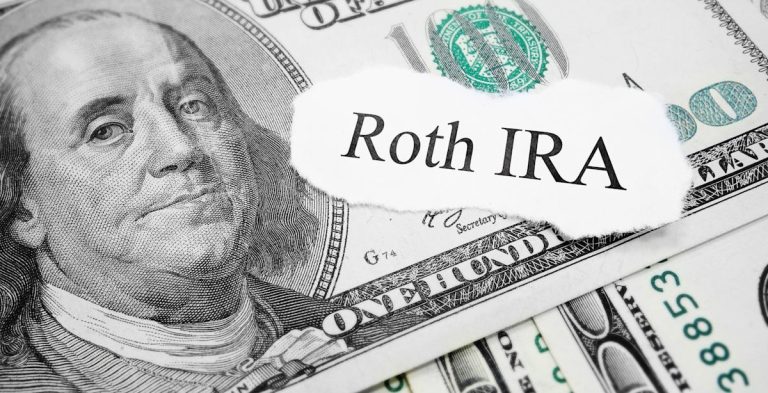Imagine this scenario: Christopher is a 72-year-old retiree with multiple medical conditions that limit his mobility. He has no retirement savings, so he’s living off Social Security alone and supplementing this income with credit cards.
But now he’s racked up $77,000 in credit card debt and faces some hard choices.
Invest in Gold
Powered by Money.com – Yahoo may earn commission from the links above.
Christopher is stuck in a cycle where, after making his minimum credit card payments each month, he has little left over from his Social Security check. So, he then uses his credit cards to cover the gap.
One bright spot in Chistopher’s financial journey is that he’s paid off his house and has equity of about $350,000. He wants to leave the house to his adult children, but doesn’t know whether it makes more sense to sell his home to pay off the debt and downsize — or to simply ignore the debt for his remaining years.
To figure out what’s best, let’s get into the numbers.
Nearly half of Americans 50+ carry credit card debt from month to month, along with 42% of Americans aged 65 to 74, according to a recent survey from AARP.
The survey also notes that about half of older adults who have credit card debt feel financially insecure. Of those in this group, more than half have credit card balances of $5,000 or more — and nearly half say their balance has grown from the previous year.
So, why are Americans 50 and older carrying so much debt? In many cases, it has nothing to do with frivolous spending — the top reasons include the cost of everyday expenses, as well as vehicle and housing costs. Many also report that health care has contributed to their debt.
Retirees do have some options for reducing debt, such as cutting back on expenses, using some of their savings or even working part-time. They could also consolidate their debt and perhaps negotiate a better rate, use the cash value of an insurance policy to pay off the debt, or even take out a reverse mortgage. It could be helpful for retirees who are in debt to chat with a financial advisor about their options.
In Christopher’s case, his expenses have already been cut as he spends most of his money on health care and paying back his credit card debt. And he’s in a cycle where not taking on new debt would mean skimping out on food or medical care.
He has no savings or life insurance to tap into and, while consolidating his debt might reduce the interest he’s paying, he could still face high monthly payments with potentially less ability to cover his expenses.
So, should Christopher just ignore the debt?
**Read more: No millions? No problem. With as little as $10, here’s how you can access this $1B private real estate fund of diversified assets usually only available to major players
Ignoring credit card debt isn’t really a practical solution. Without any savings, Christopher may need to rely on his credit card for emergencies. Plus, if he stops making payments he will likely be hounded by debt collectors, which would make his golden years a lot less enjoyable.
With the equity in his house, he’s also not “creditor-proof” and risks being sued, in which case he might be forced to sell the house. With this in mind, he’s wondering whether he should sell the house now and use the profits to pay off his debt and live off the remaining equity.
On the other hand, by keeping the house, he could retain what is likely to be an appreciating asset, and he won’t have to pay for moving and transaction costs. Although he has several medical conditions, he’s still able to take care of himself and his property, and he hopes to age in place rather than move to a long-term care home.
Christopher could consider a reverse mortgage, which would allow him to borrow money against the equity in his home. His credit rating likely won’t affect his ability to get a reverse mortgage, and the interest that accumulates over time is likely to be less than the interest accruing on his credit card balance.
If he were to borrow more than the debt balance, he might also be better able to cover his expenses over the next few years. When he passes away, his adult children could either sell the house to pay off the lender or pay it off out of their savings and keep the house.
The income from a reverse mortgage isn’t taxable, but if a balance accumulates in a savings account, it could be counted against the asset limit for Medicaid. So, if you qualify for Medicaid, you’ll want to work with your lender to structure reverse mortgage payments in a way that avoids any cuts to your benefits.
Christopher could decide to keep making the minimum monthly payments on his credit cards and keep the house. In that case, when he passes away, his estate would be required to pay the debt with the additional interest that has accrued, meaning his children may be forced to sell the house to cover it.
Whether he sells and pays the debt now, ignores the debt entirely or borrows to pay the debt, his estate is eventually going to be worth less than the value of the house he wants to leave for his children.
Money doesn’t have to be complicated — sign up for the free Moneywise newsletter for actionable finance tips and news you can use. Join now.
This article provides information only and should not be construed as advice. It is provided without warranty of any kind.







